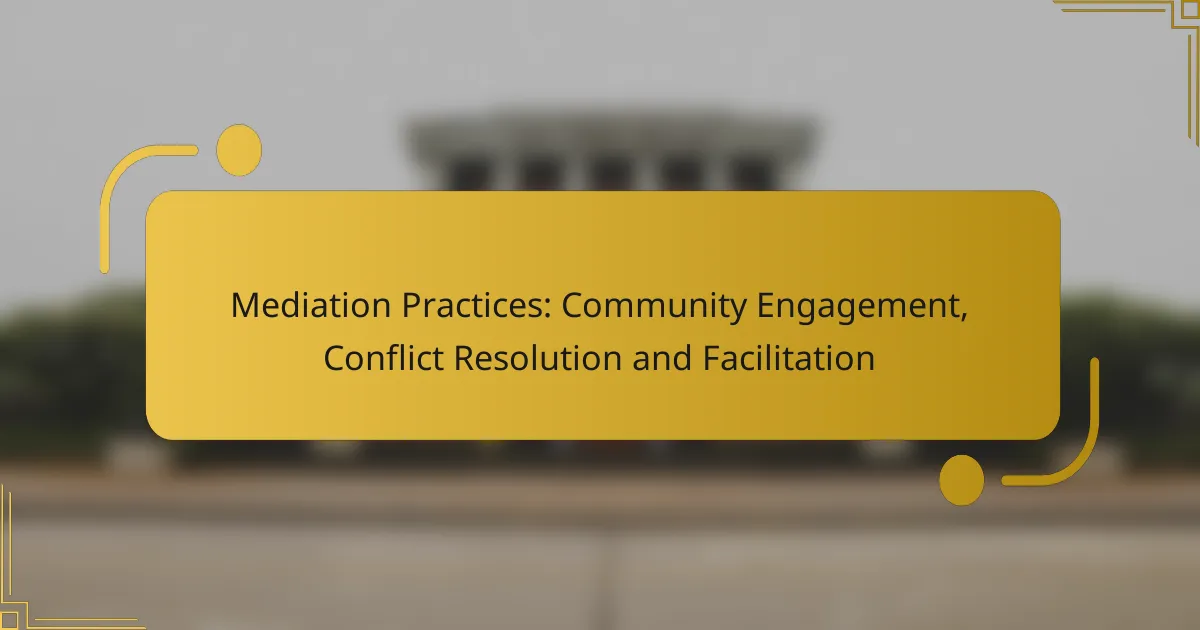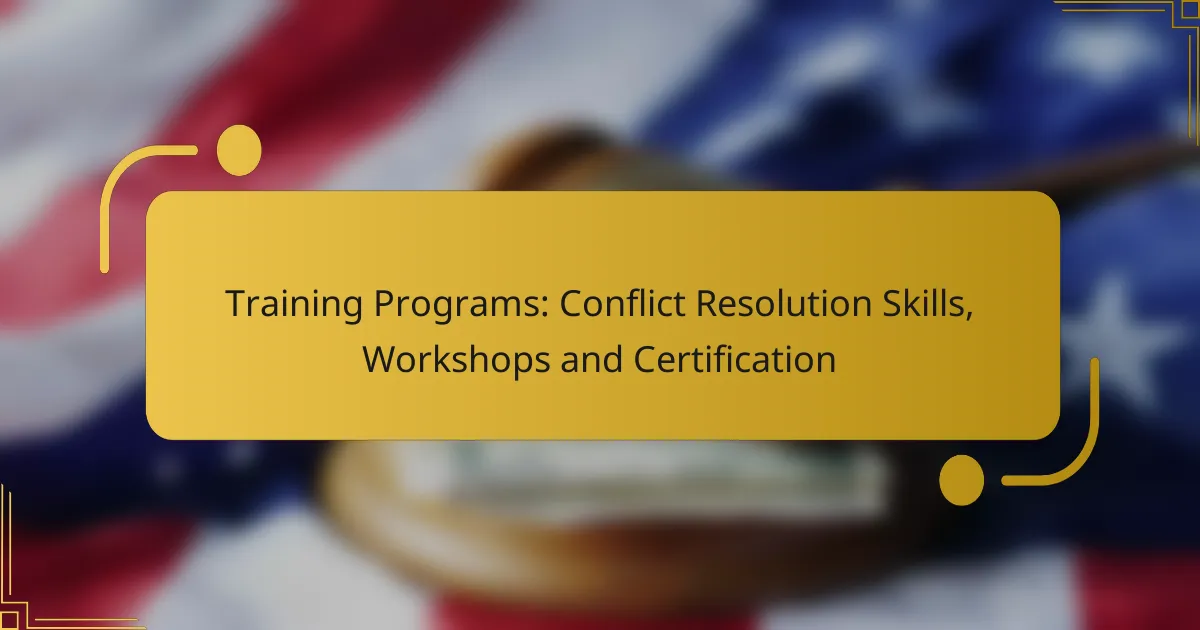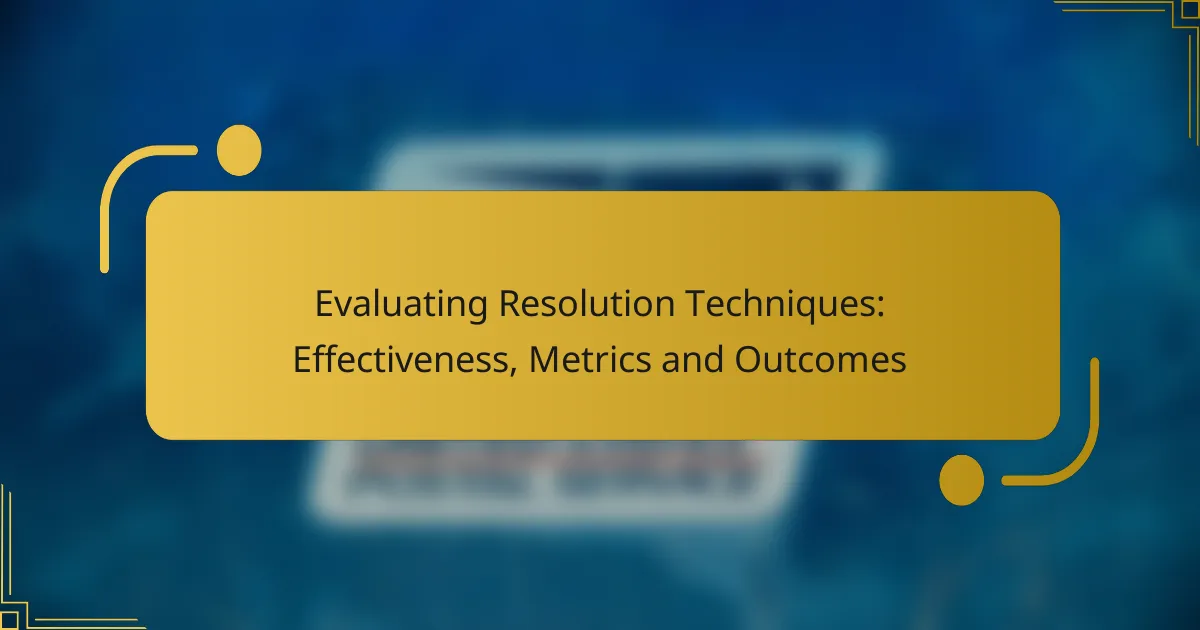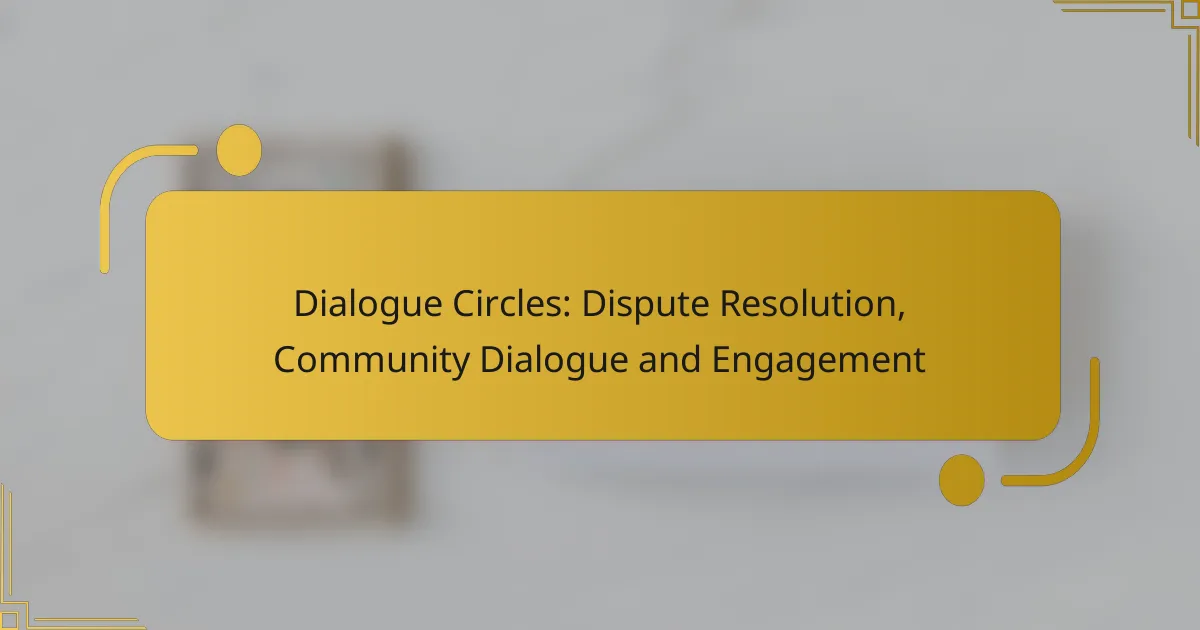Mediation practices play a crucial role in enhancing community engagement by promoting open communication and collaboration among residents. By creating a structured environment for addressing conflicts, these practices not only facilitate effective conflict resolution but also strengthen community ties through shared understanding and cooperation.
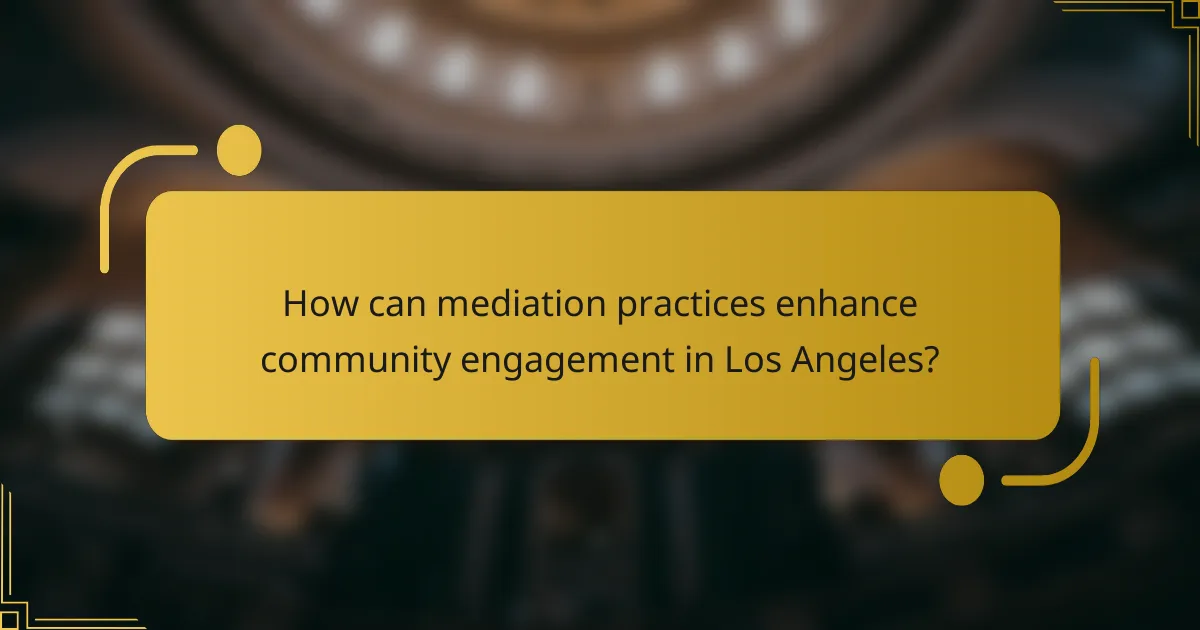
How can mediation practices enhance community engagement in Los Angeles?
Mediation practices can significantly boost community engagement in Los Angeles by fostering open communication and collaboration among residents. These practices create a structured environment where individuals can address conflicts and work towards common goals, ultimately strengthening community ties.
Workshops and training sessions
Workshops and training sessions are essential for equipping community members with mediation skills. In Los Angeles, these sessions can cover topics such as active listening, conflict resolution techniques, and negotiation strategies. Regularly scheduled workshops can attract diverse participants, ensuring that various perspectives are represented.
Consider organizing workshops in local community centers or schools, making them accessible to a broader audience. Offering these sessions at different times, including evenings and weekends, can help increase participation.
Community dialogue initiatives
Community dialogue initiatives encourage residents to engage in meaningful conversations about local issues. In Los Angeles, these initiatives can take the form of town hall meetings, focus groups, or facilitated discussions. The goal is to create a safe space for sharing opinions and experiences, which can lead to better understanding and collaboration.
To enhance these dialogues, consider using trained facilitators who can guide discussions and ensure all voices are heard. Incorporating diverse formats, such as small group discussions followed by larger assemblies, can help maintain engagement and foster deeper connections among participants.
Partnerships with local organizations
Forming partnerships with local organizations can amplify the impact of mediation practices in Los Angeles. Collaborating with schools, non-profits, and community groups can provide additional resources and expertise. These partnerships can help reach underserved populations and promote inclusive engagement.
When establishing partnerships, focus on aligning goals and sharing resources effectively. Joint events, such as community fairs or conflict resolution days, can showcase mediation practices while building a sense of unity among diverse groups in the city.
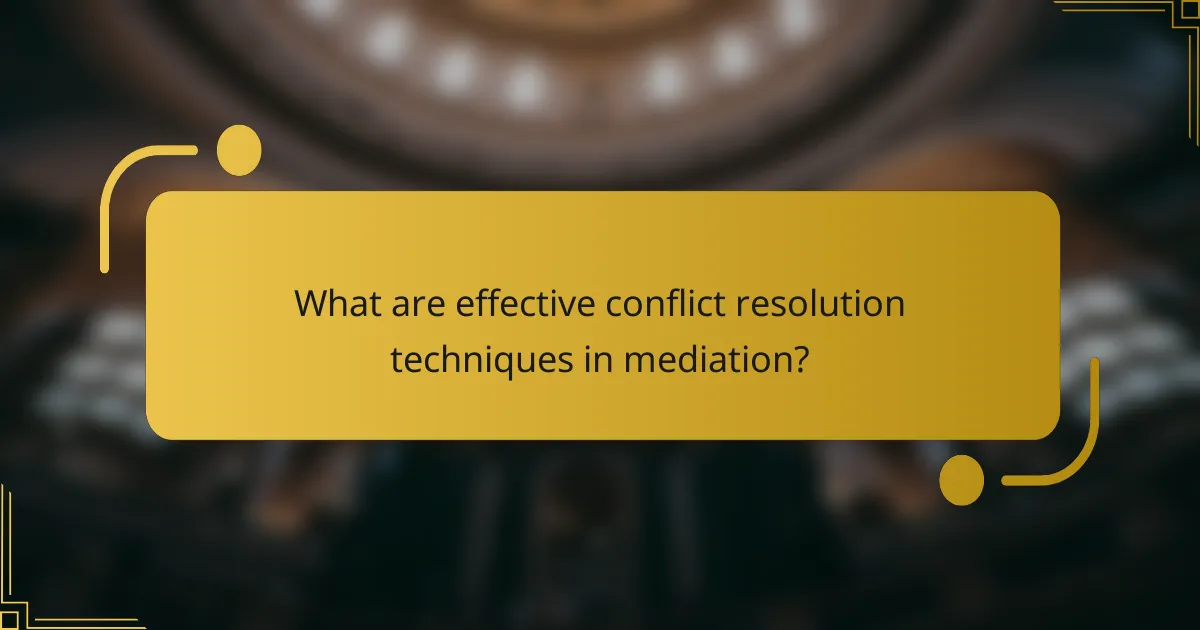
What are effective conflict resolution techniques in mediation?
Effective conflict resolution techniques in mediation include methods that promote understanding and collaboration among parties. These techniques aim to address underlying interests rather than just positions, fostering a more sustainable resolution.
Interest-based negotiation
Interest-based negotiation focuses on the underlying interests of the parties involved rather than their stated positions. This approach encourages open communication and helps identify common goals, which can lead to mutually beneficial solutions. For example, in a workplace dispute, instead of arguing over a salary figure, parties might explore interests like job satisfaction and career growth.
To implement interest-based negotiation, start by facilitating a discussion where each party shares their needs and concerns. Avoid adversarial tactics and instead encourage brainstorming of options that satisfy the interests of all involved. This method often results in more creative and satisfactory outcomes.
Facilitated group discussions
Facilitated group discussions involve a neutral third party guiding a conversation among conflicting parties. This technique helps ensure that all voices are heard and that the dialogue remains constructive. For instance, community meetings addressing local issues can benefit from a facilitator who manages the flow of conversation and keeps discussions on track.
When organizing facilitated discussions, set clear ground rules to promote respect and active listening. The facilitator should encourage participation from quieter members and help clarify misunderstandings. This method can lead to a deeper understanding of differing perspectives and foster community cohesion.
Restorative justice practices
Restorative justice practices focus on repairing harm and restoring relationships rather than punishing offenders. This approach is often used in schools and communities to address conflicts by bringing together affected parties to discuss the impact of the conflict and agree on steps to make amends. For example, a student who has bullied another might participate in a restorative circle to understand the harm caused and work towards reconciliation.
To effectively implement restorative justice, ensure that all participants are willing to engage in the process. Facilitate meetings in a safe environment where individuals can express their feelings and perspectives. This technique not only addresses immediate conflicts but also promotes long-term healing and understanding within the community.
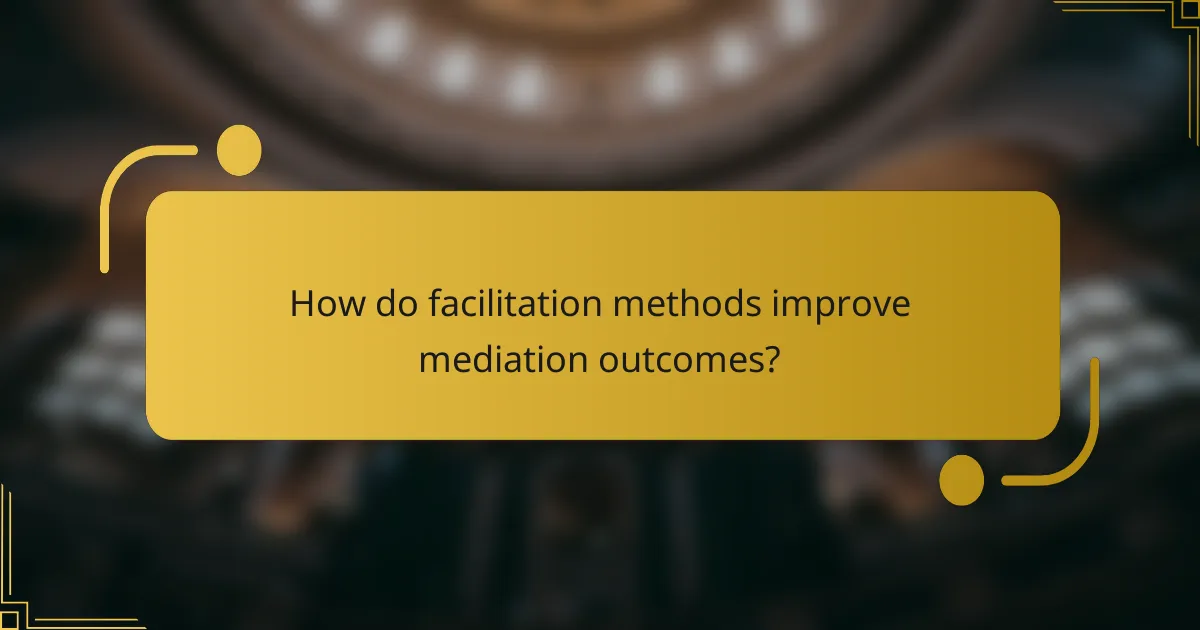
How do facilitation methods improve mediation outcomes?
Facilitation methods enhance mediation outcomes by providing structured processes that promote effective communication and understanding among parties. These techniques help to clarify issues, encourage participation, and lead to more satisfactory resolutions.
Structured agenda setting
Structured agenda setting involves creating a clear outline of topics to be discussed during mediation. This helps participants stay focused and ensures that all relevant issues are addressed. A well-defined agenda can include time limits for each topic, which encourages efficiency and respect for everyone’s time.
To implement structured agenda setting, facilitators can ask participants to contribute topics beforehand, prioritize them, and allocate specific time slots for discussion. This approach minimizes digressions and keeps the mediation process on track.
Active listening techniques
Active listening techniques are essential for understanding the perspectives and emotions of all parties involved in mediation. These techniques include paraphrasing, summarizing, and asking clarifying questions, which demonstrate that the facilitator values each participant’s input.
Facilitators should encourage participants to express their thoughts fully and ensure that everyone feels heard. This can be achieved by using reflective listening, where the facilitator repeats back what they have heard to confirm understanding, fostering a more collaborative atmosphere.
Neutral facilitation roles
Neutral facilitation roles are crucial for maintaining an unbiased environment during mediation. A neutral facilitator does not take sides or express personal opinions, which helps build trust among participants and encourages open dialogue.
To uphold neutrality, facilitators should avoid personal involvement in the conflict and focus solely on guiding the discussion. They can also establish ground rules that promote respect and fairness, ensuring that all voices are equally represented and heard throughout the mediation process.
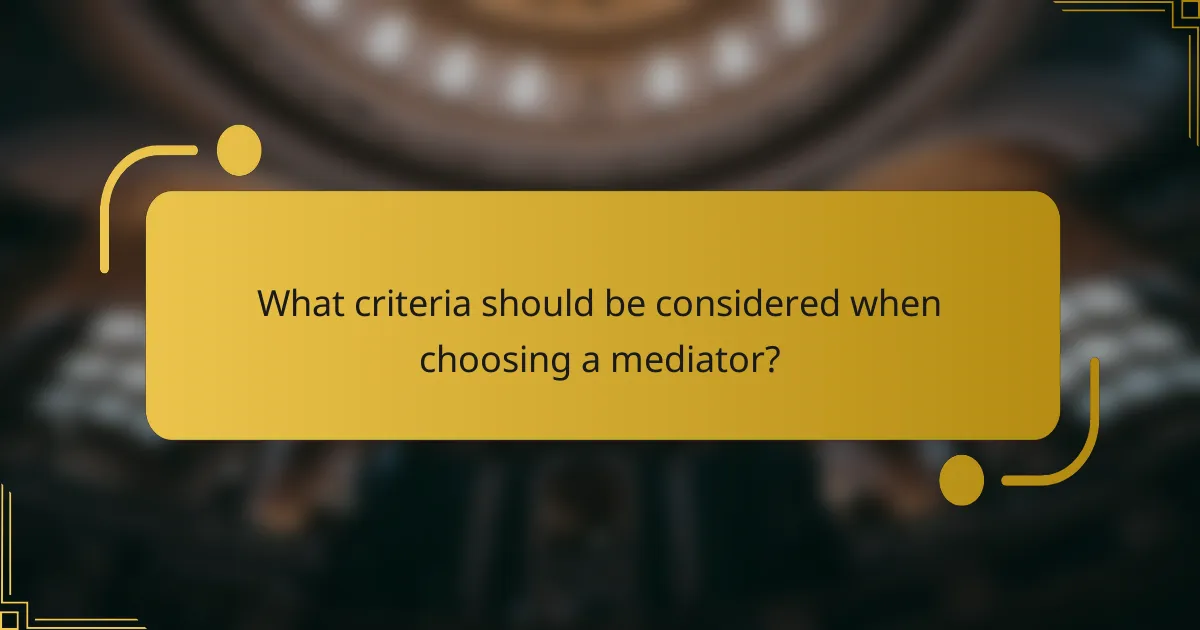
What criteria should be considered when choosing a mediator?
When selecting a mediator, consider their experience, qualifications, and approach to conflict resolution. These factors can significantly impact the effectiveness of the mediation process and the outcomes for all parties involved.
Experience and qualifications
Experience is crucial when choosing a mediator. Look for someone who has handled similar disputes and has a proven track record of successful resolutions. Qualifications may include formal training in mediation, certifications from recognized organizations, or relevant professional experience in fields like law or social work.
Additionally, consider the number of cases they have mediated. A mediator with extensive experience in community settings may be better equipped to navigate the unique dynamics of local disputes.
Specialization in community mediation
Specialization in community mediation is important as it indicates familiarity with the specific issues that arise in local contexts. A mediator experienced in community disputes will understand the cultural and social nuances that can influence the mediation process.
Look for mediators who have worked with community organizations or have participated in local initiatives. This background can enhance their ability to engage effectively with all parties and foster a collaborative atmosphere.
Approach to conflict resolution
The mediator’s approach to conflict resolution can shape the mediation experience. Some mediators adopt a facilitative style, guiding parties to find their own solutions, while others may take a more evaluative approach, offering opinions on potential outcomes.
Consider what style aligns best with your needs. A facilitative mediator may be more effective in community settings where relationships are important, while an evaluative mediator might be suitable for more complex disputes requiring expert input.
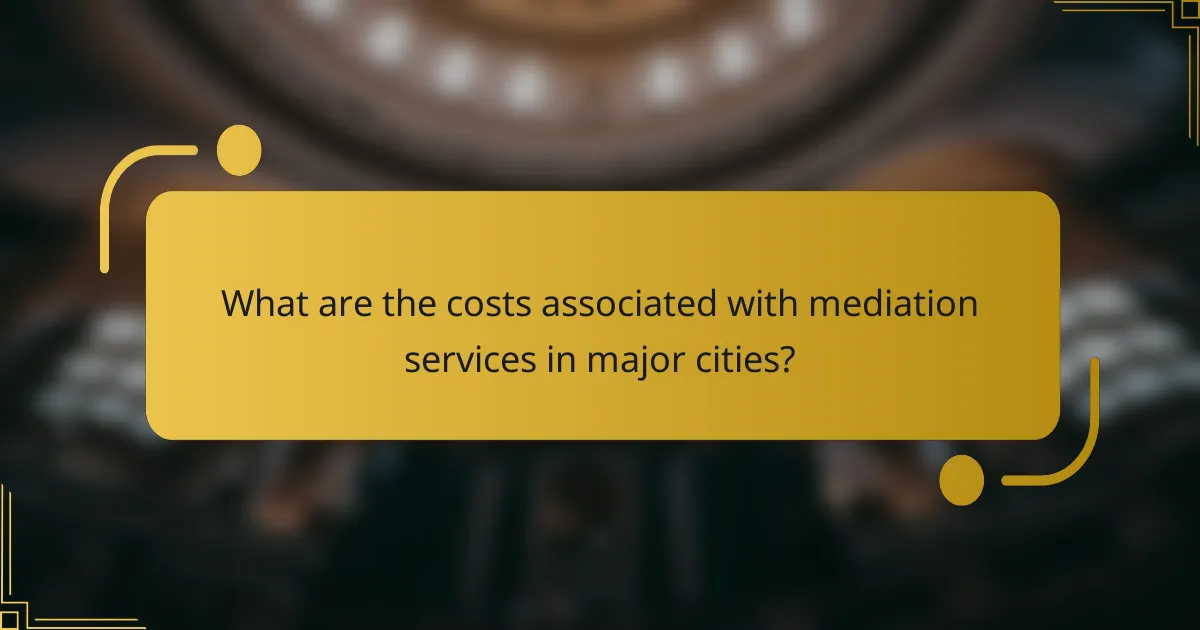
What are the costs associated with mediation services in major cities?
The costs of mediation services in major cities can vary significantly based on factors such as the mediator’s experience, the complexity of the case, and the type of mediation program. Generally, individuals can expect to pay anywhere from a few hundred to several thousand dollars for mediation services, depending on the specifics involved.
Hourly rates for mediators
Hourly rates for mediators typically range from around $100 to $500 per hour, depending on their qualifications and the market demand in a specific city. For instance, mediators in larger metropolitan areas may charge higher rates due to increased living costs and demand for their services.
When selecting a mediator, consider their experience and specialization, as these factors can influence their hourly rate. It’s advisable to discuss fees upfront and inquire about any additional costs that may arise during the mediation process.
Sliding scale fees
Many mediators offer sliding scale fees based on the client’s income or financial situation. This approach allows individuals with limited financial resources to access mediation services at a reduced rate. Sliding scale fees can range from as low as $50 to several hundred dollars per session.
To qualify for sliding scale rates, clients may need to provide proof of income or financial hardship. It’s beneficial to ask mediators about their sliding scale policies during initial consultations to ensure affordability.
Costs for community mediation programs
Community mediation programs often provide services at little to no cost, funded by local governments or non-profit organizations. These programs aim to make mediation accessible to all community members, regardless of their financial situation.
While some community mediation programs may charge nominal fees, they typically do not exceed $100 per session. Participants should check with local organizations for specific details regarding costs and eligibility requirements for these programs.
